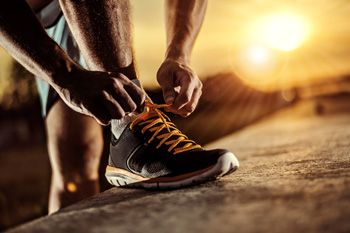
Choosing the right running shoes is important, whether you are just starting out or training for a race. The perfect pair of running shoes can help prevent injuries and make your runs more enjoyable. Plan ahead based on your running goals and surfaces, including roads, trails, treadmills, or a combination. Begin by walking in your running shoes to get accustomed to how they feel and to gradually build your endurance. Understand your movement patterns by analyzing your pronation. This helps in selecting shoes that offer the right support. Ensure there’s a thumb’s width of space between your toes and the shoe’s tip, and your foot feels secure without any pinching. Once you start running, remember that most running shoes need to be replaced after about 300 to 500 miles to maintain support and comfort. Pay attention to how much cushioning you prefer underfoot, and consider your natural gait and arch type when choosing shoes. Well-fitting shoes should hug your midfoot snugly and provide ample space in the toe box for natural movement. It is also important to match your shoes to the terrain you plan to run on, whether it is a flat pavement or rugged trail. If you experience foot or ankle pain after running, it is suggested that you schedule an appointment with a chiropodist who can analyze your footwear patterns and make appropriate recommendations, including custom orthotics.
The right running shoes can sometimes be difficult to find. With so many options on the market, it’s important to know the unique needs of your feet prior to buying running shoes. If you require assistance, please consult with Cynthia Chan, B.Sc., D.Ch from Healthy Advantage Foot & Orthotic Clinic. Our practitioner can help you maintain the health of your lower limbs and your mobility.
When looking for running shoes, take into consideration:
The type of running you will be doing
The terrain you plan to run on
Your gait or running pattern
Your arch type
Other unique foot needs
A chiropodist can help by examining your feet and your gait to determine what types of shoes may be best for you. Some runners may require motion control shoes, which prevent your foot from rolling too far inward while you run. Others may need stability shoes, which offer more balance, cushioning, and support. When shopping for shoes, make sure that they are the right size, fit comfortably, and are made of breathable materials.
If you have any questions, please feel free to contact our office located in . We offer the newest diagnostic and treatment technologies for all your foot care needs.